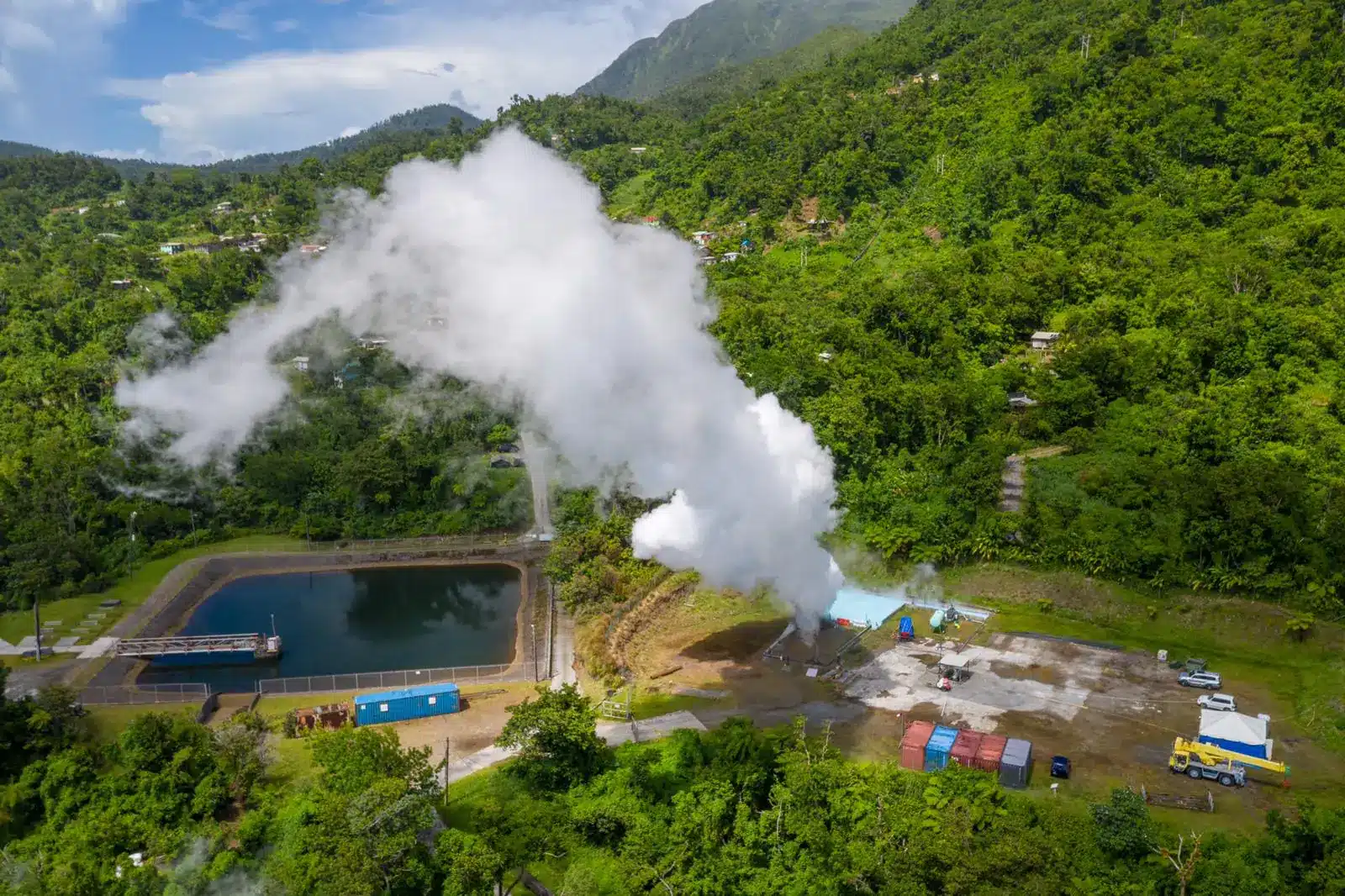OECS Commission Announces Strategic Collaboration with IRENA to Enhance Stakeholder Engagement for Geothermal Energy Development
The Organisation of Eastern Caribbean States (OECS) Commission announced a significant partnership with the International Renewable Energy Agency (IRENA) through the SIDS Lighthouses Initiative (LHI) and the Global Geothermal Alliance (GGA) to bolster stakeholder engagement in the region’s drive to develop geothermal energy. This collaboration aims to create a comprehensive roadmap for meaningful engagement and participation among all stakeholders in geothermal energy development across Member States, particularly in Dominica, Grenada, St Kitts and Nevis, Saint Lucia, and St Vincent and the Grenadines, through the OECS Commission’s GEOBUILD Programme.
The OECS Geothermal Energy: Capacity Building for Utilisation, Investment and Local Development (GEOBUILD) Programme has been supporting Member States in building their capacity for geothermal development to meet their populations’ domestic electricity consumption through clean, renewable, and sustainable geothermal energy. The programme seeks to harness the region’s geothermal potential to provide sustainable energy solutions, reduce dependence on fossil fuels, and promote economic resilience. The GEOBUILD programme is funded by the Caribbean Development Bank (CDB) with finance from the Inter-American Development Bank (IDB) and the European Union Caribbean Investment Facility (EU-CIF) through CDB’s GeoSmart Initiative.
By working closely with IRENA, the OECS Commission aims to engage local communities, government officials, and private stakeholders about the benefits and opportunities associated with geothermal energy development which could transform economies and heighten energy independence and security in the OECS.
Geothermal energy will significantly enhance energy independence for the participating Member States, which currently face some of the highest electricity prices in the world due to their dependence on imported fossil fuels. Building on the success of Guadeloupe, which has been generating geothermal power since 1986 and is expanding its capacity, Dominica is set to make history as the first geothermal power station in the English-speaking OECS and the Caribbean Community (CARICOM) by late 2025.
Dr Ernie Stapleton, Project Manager at the OECS Commission, emphasised the importance of this collaboration:
“The partnership with IRENA represents a pivotal step forward in our efforts to develop geothermal energy in the OECS. By fostering a robust stakeholder engagement, we can ensure that the voices of our communities are heard and that their needs are integrated into our energy strategies. This approach not only enhances project acceptance but also empowers local stakeholders to take an active role in shaping their energy future.”
Judith Ephraim-Schmit, Programme Director of the OECS Commission’s Sustainable Energy Unit said:
“As the OECS Commission moves forward with this collaboration, it remains committed to promoting sustainable energy solutions that align with regional goals for climate resilience and economic development. The GEOBUILD project represents an exciting opportunity for Member States to lead in renewable energy innovation while ensuring that their communities benefit from initiatives like geothermal, solar and wind power.”
IRENA’s involvement will provide technical expertise and best practices to support the OECS in fostering effective stakeholder engagement, ensuring diverse perspectives are integrated into decision-making processes. This partnership reflects IRENA’s commitment to supporting Small Island Developing States in their transition to renewable energy sources and facilitating inclusive dialogues that drive sustainable development.
Gurbuz Gonul, Director of Country Engagement and Partnerships, IRENA said:
“IRENA is pleased to partner with the OECS Commission through the SIDS Lighthouses Initiative and the Global Geothermal Alliance, to drive transformative progress in geothermal energy across the region. By harnessing the power of collaboration, we aim to ensure local priorities are at the heart of these efforts, building capacity, strengthening resilience, and delivering sustainable energy solutions that secure a more sustainable and prosperous future for OECS Member States.”
The project fosters inclusive community involvement, empowering local villages near geothermal sites to actively engage in decision-making processes and voice their concerns. Additionally, it focuses on capacity building by equipping stakeholders with essential knowledge and skills. This approach not only builds local expertise but also ensures that communities are prepared to lead and sustain their energy transitions.
Economically, harnessing geothermal resources can create jobs, stimulate local economies, and lower energy costs for consumers. Environmentally, it provides a clean and renewable energy source that significantly reduces greenhouse gas emissions compared to fossil fuels. Together, these benefits position the OECS member states to advance sustainable energy development while enhancing economic stability and environmental sustainability.





